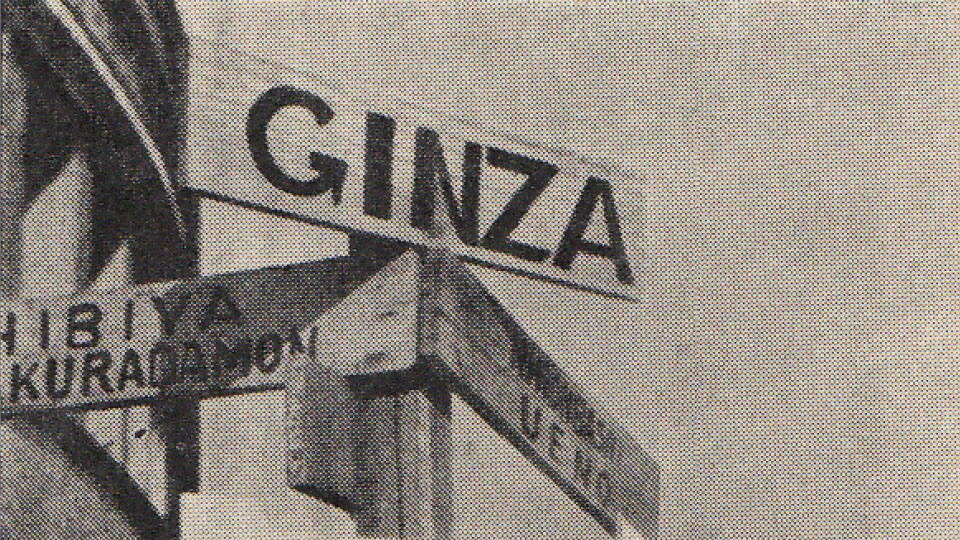Unpacking Japan’s Unique Bar Culture
Ginza, often hailed as one of the world's three great avenues, stands as Japan’s most prestigious business district. But as the sun sets, this upscale Tokyo neighborhood reveals another side—an intimate, enigmatic world tucked behind discreet signs and narrow alleyways: Ginza’s legendary bar culture.

These densely packed buildings host Japan’s most exclusive clubs, where every illuminated sign signals a different establishment. As night falls, elegantly dressed Mama-sans—matriarchal figures who run the clubs—apply their signature makeup and prepare to welcome their guests. Within these refined walls lies a distinct cultural phenomenon that fuses modern hospitality with echoes of geisha tradition.
The Unique World of Ginza Clubs
Ginza’s high-end clubs are not like Western nightlife venues. Governed by Japan's Entertainment Business Act, they are prohibited from offering explicit or transactional services. Unlike bars abroad known for their dancing and loud music, Ginza’s clubs emphasize conversation, emotional nuance, and personal connection—often referred to as a modern-day interpretation of geisha hospitality.

For many Japanese men, both married and single, visiting these clubs is a normalized social ritual. Company presidents, CEOs, and entrepreneurs spend their evenings in these refined spaces, not for the alcohol, but for the atmosphere—and, more importantly, the conversation. Pricey bottles may decorate the tables, but what’s truly valued is the sense of emotional release.
Psychological Companionship, Not Just Hospitality
Many say that Ginza clubs sell not alcohol, but empathy. In a high-pressure society, these women—especially the Mama-sans—serve as trusted confidantes. Their conversational skills are finely honed, enabling them to intuitively understand and navigate the emotional landscape of their guests. With careful eye contact, subtle nods, and well-timed smiles, they help their clients unburden themselves without judgment.

This art of communication is so revered that numerous Mama-sans have published books sharing their insights. Titles such as “The Ginza Mama-san’s Art of Conversation”, “How to Handle Men Like a Ginza Pro”, and “Mind Reading According to Ginza Mama-sans” offer lessons in charm, psychological insight, and verbal finesse. These texts often echo timeless social strategies—some jokingly liken them to a “Ginza version” of Dale Carnegie’s teachings.
The Literary Soul of Ginza
Among Ginza’s many establishments are its famed "literary bars", places that have attracted Japan’s greatest writers for decades. Nobel laureate Yasunari Kawabata, as well as literary giants Junichi Watanabe and Ryotaro Shiba, all frequented these spots. For them, Ginza was not just a place to drink—it was a creative sanctuary.

In the NHK documentary The Professionals: Women of Ginza Nights, award-winning novelist Masahiro Osawa remarks, “If you are qualified to drink here, you are definitely a leading writer.” Editor-in-chief Yoshiyuki Hatori echoes this sentiment, describing Ginza as a realm reserved for the literary elite. Junichi Watanabe himself only began visiting Ginza after turning forty, graduating from Shinjuku’s rougher scene to Ginza’s intellectual charm.
Women of Distinction: The Mama-sans of Ginza
To be a Mama-san in Ginza is to be among the best in Japan’s hospitality world. Take Takashima Mama-san, for instance. Described as a woman who “does not drink but reads”, she founded her first club at 25 and owned three by the age of 29—then the youngest Mama-san in Ginza. Fluent in twelve languages including English, French, German, and Italian, Takashima attracted high-end clientele from both Japan and abroad.
Her approach was exacting. She lost 20 jin (approximately 10 kg) upon entering the industry to appeal to customers and later set strict hiring standards: top university graduates (from Tokyo, Kyoto, or overseas), elite music conservatory alumni, and those with TOEIC scores above 900. Her motto: “Only dogs and money will never betray you.”
Another prominent figure is Mama-san Shirataka, a Waseda University graduate featured prominently in The Professionals. Each morning, she spends five hours reading newspapers to prepare for intellectual conversations with executives. Her follow-up routines include sending personalized emails and holiday cards to previous-night guests—building loyalty through unmatched attention to detail.

These women exhibit almost savant-level memory. They recall clients’ family structures, career paths, and personal preferences. In the drama Kurokawa no Techo (“The Black Leather Notebook”), a Ginza Mama-san is portrayed meticulously jotting down post-shift notes to recall her interactions—an illustration rooted in reality.
The Harsh Realities Behind the Glamour
Despite the prestige, Ginza’s bar scene is fiercely competitive and emotionally demanding. The documentary Reasons I Live Here features a Chinese Mama-san in Japan, where a guest remarks that even beauty cannot sustain a club if the Mama-san lacks hospitality skills or shows too much concern for money.

The line between performance and personal involvement can blur. Although these women are praised for selling conversation rather than physical intimacy, the article acknowledges that boundaries outside working hours may not be as clear. High-profile scandals involving politicians like Junichiro Koizumi and Sōsuke Uno, both rumored to have geisha mistresses, highlight this complexity.
A Cultural Mirror
At its core, Ginza’s bar culture reflects broader truths about modern Japanese society—loneliness, unspoken expectations, emotional repression, and the power of human connection. For guests, these clubs offer a rare place to be heard. For the women, it's a sophisticated—and grueling—profession where intelligence, charm, and resilience intersect.
Whether patrons seek relief from pressure, confidential companionship, or elite networking, one thing is certain: every Ginza night is a transaction—not just of money, but of trust, emotion, and the timeless desire to be understood.
Related Articles
You may also like...
International Hostess Bar Since 1993
夢
ORIGIN
・ International Hostess Bar since 1993
・ Japanese Hospitality with International Service
・ Diverse and Charming Floor Ladies
・Located in Shinjuku, Tokyo
・Transparent Pricing
・Easy Online Reservations




















